|
How often do you hear someone make an observation that something is broken in the world around us? It’s easy to share your opinions about fragmented systems with your friends under the guise of, “Just wanting to see a better future.” What separates the naysayers and bystanders from the doers is rather simple, it includes rolling up your sleeves, getting into the mess that you see and becoming a part of the solution. I recently came across a beautiful quote, “Volunteering is the ultimate exercise in democracy. You vote in elections once 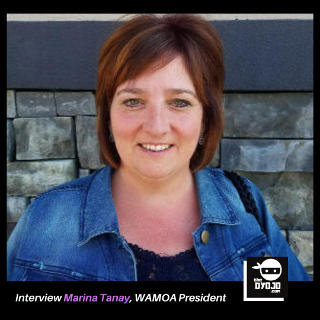 Whether you believe in the same cause, when you meet a volunteer, you are faced with someone who is invested in being a part of the change that they want to see. Change is not easy. It takes years to get into a mess and it typically takes much longer to get out of it. When we connect with others, to collaborate towards the results we want to see, we have a much better shot at conquering the obstacles of improvement. I enjoy hearing the stories of everyday people who are working to develop themselves and are intentional about making a change in the world around them. Marina Tanay currently serves as the Capital Projects and Facilities Manager for the Sumner-Bonney Lake School District. Marina was recently voted in as the President of the Washington Association of Maintenance and Operations Administrators (WAMOA). WAMOA is a professional networking and education association for those working in the realm of facilities and operations in educational settings. We had the opportunity to meet and to interact for this interview. The DYOJO: You have been with Sumner School District for 11 years, correct? Marina Tanay: I actually started with the Sumner School District over 19 years ago. DYOJO: Did you plan to be working in facilities/capital improvement when you started your career? Marina: When I first started, I just wanted to work around my kids' school schedules and have a job that I didn't have to take home with me. My background as a paralegal and a writer made me seek out more and more responsibility as my kids got older. After subbing in M&O, I found my niche. DYOJO: Did you start in part time work? What position was your first? Marina: I did start part time in the child nutrition world with the district as a cashier. It worked for me as I had just recently been diagnosed with cancer and I wanted to have a job that I didn't have to put so much of myself into while I dealt with that. I had previously been writing and doing advertising for a small local newspaper. DYOJO: Wow, cancer. What led to this discovery? Marina: I had a very rare cancer called chondrosarcoma in my right hand. I had a lump in my hand that I questioned being a tumor, but the doctor thought it was a cyst. It grew for about 3 to 4 years in my hand before I insisted on follow up. At that time, my options for treatment were limited. The cancer wasn't one that would respond to chemotherapy and radiation wasn't an option with my hand. So amputation was my only real option. DYOJO: How old were your children when you were given this news? Marina: My kids were both in elementary school when I was diagnosed in 2000. My kids were troupers. I worked with school counselors to make sure they had support on the school side and my husband and I were open and honest with them throughout. DYOJO: Scary stuff. Glad that you and the family made it through. Marina: Getting through it was mostly an emotional battle. It wasn't always easy, but I got through it. DYOJO: You are originally from this area, what has kept you here? Marina: I am a native Washingtonian and have lived all over this state. My husband recently retired from Boeing and it was his employment at Boeing in Auburn that helped keep us in this particular area. DYOJO: Federal, state, county, city and district budgets are always an area of concern for local communities and their schools. What are some of the unique challenges you face working on facilities and capital improvement within the public sector? Marina: Such a true statement! It is challenging on both the general fund and capital budget sides. For the general fund, with McCleary, we've had to go through a couple rounds of budget cuts that have been a challenge for the entire district. It's hard to lose good co-workers to layoffs. From the capital perspective, the hot Northwest construction market has not helped school districts. I miss the days in 2009, 10 and 11, when our projects were routinely bidding below estimate! DYOJO: What have been some of the most rewarding projects you have worked on? Marina: I have been very fortunate to work on projects from two bond initiatives. I'm most proud of the elementary schools we have opened in Tehaleh as I worked closely on the FF&E for both projects:
DYOJO: You are the incoming president for WAMOA, how did you first hear about the organization and when did you become a member? Marina: WAMOA is the Washington Association of Maintenance & Operations Administrators. I remember becoming acquainted with WAMOA in the early 2000s by reading the journals. I began attending region meetings about 7 or 8 years ago. 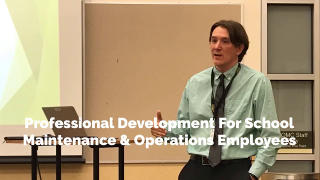 DYOJO: These WAMOA journals in the early 2000s, are those similar to the quarterly publication that WAMOA currently sends out? Marina: Yes, I inherited a binder of early WAMOA journals that I really treasure. DYOJO: For those who are not familiar tells us a bit about WAMOA and why you believe it is of value to those working in education? Marina: WAMOA's core mission is reflected in our new vision statement: Developing successful facility leaders through professional collaboration. Managing school facilities is unique in the industry and our organization is an invaluable resource for its members. As a team, we work to provide up-to-date, useful information to support our members' success in their work and to develop as leaders in our field and our districts. DYOJO: What sparked your interest in being involved in the leadership for WAMOA? What have you learned about working to serve your members as well as combine your voices to position your association to initiate positive change within the larger context? Marina: At the heart of it is my desire to serve. I value my peers and am proud to serve them as they trust me to do so. Whether it has been as a region representative, vice president, or now president, I am dedicated to serving the organization and its members as best I can. As an organization, we are great collaborators and I value the organizations that we are developing collaborative relationships with to broaden our discussions and create positive impact. DYOJO: As the president of a not for profit organization, what is your vision for your term? Marina: Our 2020 conference theme really reflects my vision, "Leading by action and example" which is a concept that I believe in. The best quote I've seen that sums it up says that "Leadership is not a position or title. It is action and example." I believe that. DYOJO: What do you believe are some of the keys to implementing your vision and seeing it executed to the best of your ability? Marina: My goals for this year are to develop a vision statement, which we just recently accomplished with input from members and the board in a collaborative fashion. Next we will conduct a SWOT analysis and use the information generated to develop a new strategic plan so that we can carry out our mission, as reflected in our vision statement. Key to this work is communication and trust. I believe we have good communication in our organization and that the necessary trust relationship is developing as well. 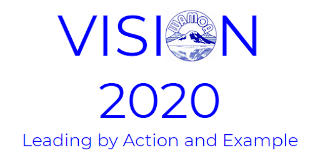 DYOJO: We have discussed what it looks like to promote leadership development for and amongst your peers, what are some of the keys to doing this when your group is spread out? Marina: WAMOA has it down! Our regions focus on local issues and provide good content at our regional monthly meetings. We invest in and work hard to provide the best keynote and leadership seminar speakers that we can find. Our conference committee works hard to put together a strong slate of workshops at our annual conference to meet the needs of all our members. The balance between the regional meetings and the leadership seminar and conference seems to really work for us. DYOJO: For your own personal/professional development what have been some books, events and other resources that encouraged you in 2019, what did you draw from them? Marina: 2019 was a HUGE year for me. I accomplished a lifelong dream and obtained my Bachelor of Science degree in Business Management finally. The course content was so relevant in both my professional and WAMOA life. DYOJO: Congrats on completing your Bachelor’s, I know how good that feels as I recently completed mine as well. What are a few professional development components that you are looking forward to in 2020? Marina: I've also been so motivated and inspired by some of our past leadership speakers. Brad Worthley, Phil Van Hooser and others inspire me constantly with their newsletters and blog posts that I continue to follow. I'm looking forward to hearing Denise Ryan in March. And it might be time for me to start pursuing my project management certification. That may be a new challenge that I set for myself! I discovered WAMOA when we moved to Washington, as I had previously been involved with a similar group in Oregon called OSFMA (Oregon School Facilities Management Association). WAMOA does a great job of providing monthly regional meetings for local networking. There is a Spring Leadership Seminar in beautiful Leavenworth and a Fall Conference in the Valley of Hops, Yakima. If you work in education, facilities, operations, custodial, managing union labor or provide services that would be of value to these professionals, WAMOA will be of value to your development goals in 2020 and beyond.
0 Comments
Is it better to be skilled or to be lucky in business?People ask whether it is skill or luck that leads to success. The truth is that it’s a little bit of both. You have to have the skill to put yourself in a position to recognize and seize upon your opportunities. Gerrett Stier brought his podcasting gear to the 3 Kings Environmental Sumner, Washington office to discuss business with Jon Isaacson. Gerrett is the owner of GMS Distribution which makes power distribution tools for property restoration. His main product is a panel that allows contractors to draw additional power immediately from a dryer or range plug so that they can more equipment in the service of a water damage response. The lessons you will learn when starting a business.Gerrett is an electrician by trade and in 2007 he started working with property restoration contractors. Because he is a service minded person, he sought to make a product for his clients that would save them money and time when sourcing the traditional spider box in situations where they needed additional power. The initial units were hand made from electrical parts. In 2009, as the market crashed and Gerrett’s hours were cut in half, he took his product on the road and went door to door to determine if there was a broader demand for this distribution unit that he had been making for local restoration contractors. When you have a good product, a good attitude and refuse to allow tough times to take you out, you can put yourself in a position to create some luck. As Gerrett says, “Being smart enough to be lucky.” Collaboration is key when building a business.As he was building GMS Distribution, he shares some really cool stories of how local vendors collaborated with Gerrett to help him get the process moving forward. Gerrett has a strong commitment to taking care of his customers and was able to attract partners who held similar values. Transitioning from a skilled professional working in a business to an entrepreneur who is building and working on your own business requires intentionality to persevere through the many obstacles. Gerrett Stier started The GMS Podcast in late 2019 and for Episode 5 “Skill & Luck”, he and Jon discuss how GMS Distribution was formed, what 3 Kings does and what The DYOJO is about. What is asbestos abatement?3 Kings Environmental provides services for demolition, abatement, environmental and civil construction. Gerrett asks questions about the asbestos abatement process such as:
Business coaching for entrepreneurs and small business owners.What is The DYOJO? Gerrett asks when did Jon get started writing, speaking and coaching for property restoration professionals? Jon discusses his start in property restoration, being introduced to a mold remediation team and learning the skills of the business. He shares how he had the good fortune of learning from good mentors early on which set him up for a trajectory of career development within the industry. Jon discusses the motivation and concepts for business coaching and leadership development through The DYOJO. Leadership development for business owners.Jon and Gerrett share where they were and what they were doing when the impact of the market crash hit in 2009. Jon had a family owned business that ran dry and Gerrett was working in electrical where his hours were cut in half so he hit the road selling his product. They share their experiences with learning to keep yourself motivated through trials and endure as you pursue your goals.
The discussion touches on topics including entrepreneurship, asbestos, property restoration, building professional relationships, developing intentionally and doing things the right way in business. Jon also announces two books that he is working on, one is a collaborative publication with multiple authors that will be published through the Insurance Nerds network and the second is a solo project based upon his training and development system for service based companies. Follow these local businesses:
We became aware of Insurance Nerds after we reviewed their book Insuring Tomorrow: Engaging Millennials in the Insurance Industry. We previously conducted email interviews with founders Tony and Carly, so it was a great opportunity to do this video interview with Carly Burnham. Here is a brief summary of our conversation, please give a watch and/or listen and then check out their valuable efforts at InsNerds.com. Insurance Nerds was born in 2014. Carly Burnham and Tony Canas met each other working for the same large insurance carrier and continued to work with each other for four years. Tony had previously worked in a claims call center and had moved into underwriting. Carly had a background working in a local insurance agency doing front line customer service. That experience exposed her to a broad range of insurance products and learning how to work directly with clients.
When Carly moved into the call center, where she met Tony, her experience was the opposite of working at a local agent’s office. As she describes, “Selling a product that is very complex, that has a lot of nuances, and you’re talking to people in 26 states to try to connect and make a sale.” Carly and Tony were working with a young professionals resource group coordinating education and networking opportunities within the company. They started blogging on InsNerds to discuss those topics of professional development and maintained that effort even after they both left the large carrier where they met. Insurance Nerds plays an important role in continuing that shared vision of helping young professionals develop career pathways through education and networking. The concepts that became the book, Insuring Tomorrow, had been in discussions for about 3 years when Tony’s partner made the final push to encourage them to write the book. Carly and Tony brought in a copy editor who assisted with the structural plan. For marketing Tony sent out 50 free copies to people whom they felt would be interested and could help create feedback to fuel interest in the product. As Carly notes, the talent crisis is an ongoing issue within the insurance industry, as well as throughout all organizations. Understanding generational and cultural differences is key to success with recruiting and retaining talent. Insuring Tomorrow and the InsNerds website continue to grow as resources speaking into these areas of need. Nick Lamporeli joined the effort bringing a podcast, Profiles in Risk, which expanded the offerings as well as the audience. Early episodes were discussions between Nick, Carly and Tony but the podcast has grown to include interviews with innovators in many facets of the insurance industry. Insurance Nerds has gathered a broad range of voices speaking to young professionals as well as a thriving network of young professionals networking with each other through their Slack community. Their bookshelf now includes titles they have published including The End of Insurance As We Know It, When Worlds Collide as well as several new titles they will release in 2020. As a positive sign of their growth in the last five years, Carly Burnham has now become the CEO and first official full time employee. If you are in the insurance industry, you will find the resources available through Insurance Nerds to be invaluable to your efforts for career development. Tips to grow your business through social media and local networks.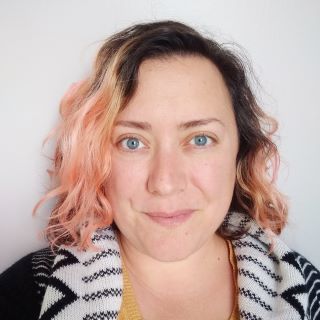 How many consultants do you know that can say they have a background in public policy, specifically climate and transportation, who then transitioned their love of vintage items into a thriving local business? We took some time to interact with local business consultant Allison Bishins who survived moving her growing family from Washington DC to the other Washington. The discussion regarding solutions for climate concerns and traffic issues are relevant coast to coast, as is her passion for helping business owners to achieve their goals. Allison has maintained her involvement in sustainability issues by creating The Sustainability Summit for South Sound Women in Business and has rapidly become a fixture in the Tacoma community. Allison has a passion for helping local businesses replicate her success through building both a social media presence as well as a literal social network. By doing so, entrepreneurs can benefit from the best of what the internet and the physical world have to offer. The DYOJO: What is your business origin story - when did you know that you had an idea/skill that you wanted to adapt into a business? Allison Bishins: I started my first business in 2008 when I realized I wanted to keep collecting vintage without it overwhelming my house! It was born out of a combination of a hobby and a desire for less clutter. I was working full time on climate and transportation policy. I still run that business, though it's a tiny part of what I do now. (Vintage will always be my first business love!) I left the nonprofit world in 2011 when I had my first child. DYOJO: How did you go about starting up your entrepreneurial efforts in a new land over 2,500 miles away from your existing network? Allison: When we moved to the West Coast with a second baby on the way, I turned my tiny jewelry hobby into a growing, robust business. I doubled my revenue every year for several years, almost exclusively through Instagram. When several other handmade businesses reached out for advice on how to replicate my success, I knew I had an opportunity to help other people and widen my business offerings. DYOJO: How do you source your jewelry? Allison: All of my jewelry is handmade, and about 90% of my necklace materials and 50% of my earring beads are reclaimed or second-hand materials. I do a lot of deconstruction and reconstruction. DYOJO: You moved to the Pacific Northwest, to a city you’ve never heard of in Tacoma, you start up a jewelry business that takes off and then you decide to share your experiences with others. Allison: I started offering workshops in 2017 because so many amazing business owners in my community didn't know each other. I wanted to create a space for people to get to know each other deeply and support each other. When we had 42 attendees at my first workshop, I knew I was on to something! 2.5 years later there are still ongoing contracts, collaborations, and friendships that came out of the workshop! DYOJO: What was one lesson you learned from a positive mentor that has stuck with you through your development? Allison: I haven't had a lot of mentorship in my business journey, but I learned a lot from my the way my dad ran his construction business: generous, fair and empathetic but firm and with high expectations. I started working when I was 13 (making sandwiches at a deli!) Some of the best advice I've received has actually come from the internet - it can be sort of a mentor for those without support structures. My favorite quote I read online and really stuck with me is, "Let go of what no longer serves you." It's so helpful in life and in business. DYOJO: What was one lesson you learned from a negative example and how did you adapt from that to construct your method of approaching business? Allison: I've had a lot of bad bosses, and their failures tended to be a function of either poor communication or underlying biases (sexist, racist, etc.) I've done a lot of personal work on undoing biases, prejudices, and expectations. While I know my business can grow significantly with employees, I've avoided hiring staff because I know just how hard it is to be a great manager that supports people while also getting excellent results. Communication, I feel like, is the universal flaw - even if we work on our communication skills, there's always someone who will read our words differently than we mean them. That makes business hard! Especially when the bulk of your business is conducted online or over email. DYOJO: What does Allison Bishins Consulting do? Allison: I am a small business consultant. About half of what I do is teach small businesses how to use social media marketing to grow and build community. The other half are workshops and one-on-one consulting focusing on increasing efficiency, letting go of activities and revenue streams that stress you out or don't lead you to your goals, and fostering community building. DYOJO: What do you feel is unique about how you approach small business consulting? Allison: My approach is unique because I have a background in urban policy, sustainability, marketing, handmade business, and nonprofit administration. Every workshop and session is underpinned by the question: How can you grow your business while also building community and reducing your stress? I call this "soft" consulting, because even though we often talk about tactile topics like finances, marketing, etc, a lot of the work I do centers around societal and personal expectations and how they play into the work you do. DYOJO: I am a believer in the power of collaboration. You say, “When our businesses are connected and supportive, our local community thrives!” In an age when we are all strapped for time, can you elaborate how you have seen entrepreneurs come together and find value by investing in/with other business leaders? Allison: I firmly believe that our local business community is stronger when it works together and supports each other (Allison wrote an article on the benefits of community engagement for business leaders). I frequently collaborate with other consultants whose clientele and expertise overlaps with mine. I'm always learning from the amazing people in my community. Wouldn't it be a shame to shut that off and say 'no, I'm the expert, I have to stay separate?" Some of my most popular and impactful classes are a collaboration between a local yoga teacher and myself. I have always enjoyed thinking through problems in non-traditional ways, so partnering and collaborating is a natural fit for me. But I want to encourage more people to see collaboration as a priority, rather than a last-minute scramble. DYOJO: Tell us more about Nurture. Allison: I run a Facebook group called Nurture: Tacoma Women and Non-binary Business Support Group. I am constantly invigorated by the support and expertise the members give each other, without expectation of that energy being returned. I've seen so many cool collaborations and partnerships come out of that group and my Nurture Small Group Networking events. DYOJO: You note that you offer “social media marketing training instead of social media management”, what is the distinction and why is that important for entrepreneurs? Allison: I train businesses in Social Media Marketing - teaching the business owner, marketing manager, or even an intern, how to use social media to increase revenue while also connecting with their community. Social Media Management is when a freelancer actually takes the reigns and creates and posts content for a business. DYOJO: If an entrepreneur is on the fence about running their social media in house or hiring a manager, what would your encouragement be? Allison: I've always been skeptical of Social Media Management because the magic of social media is in authenticity - getting to know and trust the businesses you follow. And having a freelancer do that work makes it harder to achieve those levels of trust. There are cases when Social Media Management might be the best option for a business, but a really good Manager is very expensive, and I usually encourage people instead to hire someone part time they can train in-house (sometimes with some expert training!) Social Media best practices from Allison Bishins:
DYOJO: With regards to consulting, what perspective/advice would you give someone who is thinking of entering the consulting world? Allison: If someone was interested in becoming a consultant, I'd encourage them to really dive into why, and what perspective they can offer that's different than what's on the market. I encourage my clients in most businesses to "niche down" - to find out what they do that's extra special and focus on that. It's easier, in my experience, to offer a very specific product and a following, and then expand outwards, than to offer every type of product and build a reputation on the broadness of what you offer (Amazon being one big exception!) In The DYOJO we believe in the power of local business leaders to connect, collaborate and conquer to achieve their goals. It has been refreshing to see Allison as an active force for local businesses to thrive by partnering with each other - the essence of what networking should be. Please note her encouragement for unlocking the power of social media - 1) be authentic, 2) connect locally and 3) lean in to clarity. Visit Allison Bishins Consulting to discover the philosophy, services and events that Allison has to offer. |
AuthorThoughts on personal and professional development. Jon Isaacson, The Intentional Restorer, is a contractor, author, and host of The DYOJO Podcast. The goal of The DYOJO is to help growth-minded restoration professionals shorten their DANG learning curve for personal and professional development. You can watch The DYOJO Podcast on YouTube on Thursdays or listen on your favorite podcast platform.
Archives
March 2023
Categories
All
<script type="text/javascript" src="//downloads.mailchimp.com/js/signup-forms/popup/unique-methods/embed.js" data-dojo-config="usePlainJson: true, isDebug: false"></script><script type="text/javascript">window.dojoRequire(["mojo/signup-forms/Loader"], function(L) { L.start({"baseUrl":"mc.us5.list-manage.com","uuid":"b9016446bd3c6a9f0bd835d4e","lid":"83282ffb9e","uniqueMethods":true}) })</script>
|
Jon Isaacson |
Connect. Collaborate. Conquer.
© COPYRIGHT 2015. ALL RIGHTS RESERVED.
|

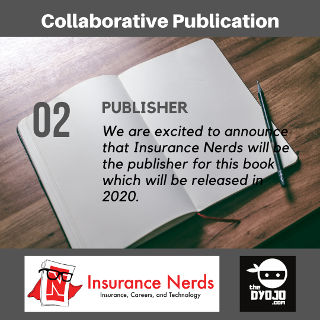
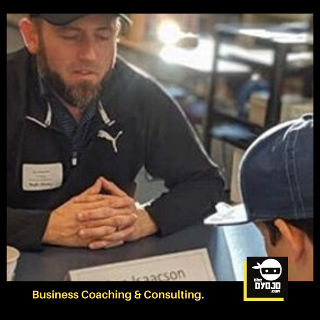




 RSS Feed
RSS Feed